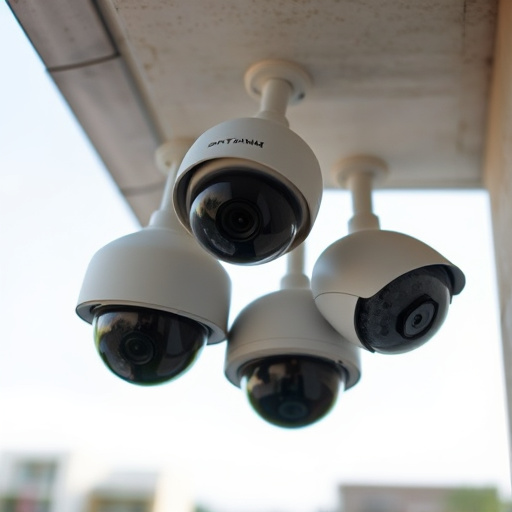Professional dummy security equipment, including realistic-looking fake cameras, acts as an affordable psychological deterrent against crime. While they visually simulate active surveillance, their limited functionality (no recording or transmission) makes them most effective in high-risk areas or for temporary security. For long-term protection, real surveillance systems with HD recording, remote access, and sophisticated motion detection are superior. Fake cameras can significantly deter intruders by creating the illusion of robust security, but their effectiveness depends on quality and placement; legal considerations, especially privacy laws, must be addressed before installation. The question of whether fake security cameras work remains nuanced based on these factors.
“Discover the power of professional-grade dummy security equipment, a game-changer in home and business protection. This comprehensive guide explores the effectiveness of fake security cameras, shedding light on how these devices can deter crime and provide peace of mind.
Learn about the benefits, from reducing real camera costs to offering realistic deterrence, and gain insights into considerations for optimal placement and maintenance. Uncover why do fake security cameras work and navigate the world of dummy gear with confidence.”
Understanding Professional-Grade Dummy Security Equipment
Professional-grade dummy security equipment, including fake security cameras, is designed to mimic real surveillance systems but at a fraction of the cost. While one might wonder if do fake security cameras work effectively, the answer is both yes and no. Visually, they appear realistic and can deter potential criminals by signaling that a property is under surveillance. However, their functionality is limited; they don’t record or transmit video feeds, and motion sensors are often basic, relying on simple infrared technology.
These dummy cameras serve best as a psychological deterrent in high-risk areas or for temporary security measures. They can be strategically placed to mislead intruders, giving homeowners and businesses an extra layer of peace of mind without breaking the bank. Remember, though, that real security systems offer advanced features like HD recording, remote access, and sophisticated motion detection, providing a more comprehensive solution for long-term protection.
How Effective Are Fake Security Cameras?
Fake security cameras, often referred to as dummy or decoy cameras, have become an increasingly popular choice for homeowners and businesses looking to deter potential intruders. But do they really work? The answer is a resounding yes, but with some caveats. These realistic-looking replicas are designed to mimic the appearance of actual surveillance equipment, providing a visual deterrent that can significantly reduce break-in attempts.
While fake cameras don’t have the capability to capture footage or transmit images in real time like their functional counterparts, their mere presence can send a strong message to would-be criminals. By strategically placing these decoy cameras around properties, individuals can create the perception of an enhanced security system, thereby discouraging unauthorized access. This psychological effect is often just as powerful, if not more so, than actual surveillance technology.
Benefits and Considerations for Using Dummy Security Gear
Using professional-grade dummy security equipment, including fake security cameras, offers several advantages for homeowners and businesses alike. Firstly, they serve as a powerful deterrent to potential intruders, as real cameras can be enough to discourage break-ins simply due to their presence. This is especially beneficial in areas with high crime rates or for properties with valuable items. Moreover, dummy gear provides a cost-effective solution compared to installing actual surveillance systems, making it an attractive option for those on a budget without compromising security.
However, when considering the use of fake security cameras, there are a few important points to keep in mind. While they can be highly realistic and convincing, the effectiveness as a deterrent may vary based on the quality and placement of the dummy equipment. It’s also crucial to ensure that real security cameras or alarms are still in place for genuine protection. Additionally, the legal implications of using fake cameras should be understood, especially regarding privacy laws, to avoid any potential issues.
